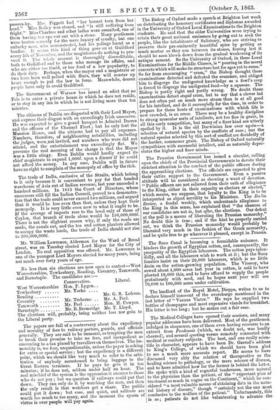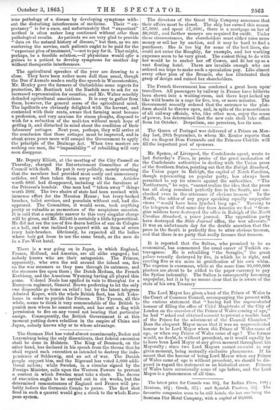The Medical Colleges have opened their sessions, and many popular
addresses have been delivered. Most of the gentlemen indulged in eloquence, one of them even having recourse to an extract from Pend,ennis (which, we doubt not, was loudly cheered), and several quoting verses remotely connected with medical or sanitary subjects. The best, and one really scien- tific in character, appears to have been Dr. Garrod's address to King's College, of which we should have been glad to see a much more accurate report. He seems to have discussed very ably the relation of therapeutics as the healing science to pathology, or the mere science of disease, and to have admitted how far the former is behind the latter. He spoke with a kind of regretful tenderness, more natural to the physician than the patient, of the "expectant plan of treatment so much in vogue on the Continent," which he con- sidered "a most valuable means of obtaining data in the natu- ral history of disease," though "certainly not the one most conducive to the welfare of the patient." Unfortunately, this is so ; patients do not like volunteering to advance the true pathology of a disease by developing symptoms with- out the disturbing interferences of medicine. Their "ex- pectancy" is for a cure, and unfortunately that "expectant" method is often rather long continued without other than pathological results. As patients we are very glad to provide "data on the natural history of disease," but then, as we are conferring the service, such patients ought to be paid for the "expectant plan of treatment,"—not to pay for it. That might, perhaps, be a feasible solutions—if physicians would offer a guinea to a patient to develop symptoms for another day without therapeutic interferences.































 Previous page
Previous page